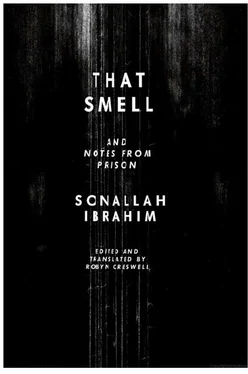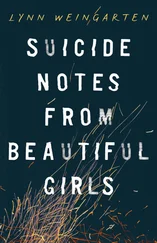Sonallah Ibrahim - That Smell and Notes From Prison
Здесь есть возможность читать онлайн «Sonallah Ibrahim - That Smell and Notes From Prison» весь текст электронной книги совершенно бесплатно (целиком полную версию без сокращений). В некоторых случаях можно слушать аудио, скачать через торрент в формате fb2 и присутствует краткое содержание. Год выпуска: 2013, Издательство: New Directions, Жанр: Современная проза, на английском языке. Описание произведения, (предисловие) а так же отзывы посетителей доступны на портале библиотеки ЛибКат.
- Название:That Smell and Notes From Prison
- Автор:
- Издательство:New Directions
- Жанр:
- Год:2013
- ISBN:нет данных
- Рейтинг книги:4 / 5. Голосов: 1
-
Избранное:Добавить в избранное
- Отзывы:
-
Ваша оценка:
- 80
- 1
- 2
- 3
- 4
- 5
That Smell and Notes From Prison: краткое содержание, описание и аннотация
Предлагаем к чтению аннотацию, описание, краткое содержание или предисловие (зависит от того, что написал сам автор книги «That Smell and Notes From Prison»). Если вы не нашли необходимую информацию о книге — напишите в комментариях, мы постараемся отыскать её.
Notes from Prison
That Smell and Notes From Prison — читать онлайн бесплатно полную книгу (весь текст) целиком
Ниже представлен текст книги, разбитый по страницам. Система сохранения места последней прочитанной страницы, позволяет с удобством читать онлайн бесплатно книгу «That Smell and Notes From Prison», без необходимости каждый раз заново искать на чём Вы остановились. Поставьте закладку, и сможете в любой момент перейти на страницу, на которой закончили чтение.
Интервал:
Закладка:
Then one night I won’t forget I glanced over the diary, composed in a telegraphic style, which I wrote in every night after the policeman’s departure. There were only a few entries, about sixteen days as I remember. I read the whole thing, then shivered with excitement. There was a buried current running through that telegraphic style, a style that never stopped for self-examination, didn’t bother to search for le mot juste , nor to make sure that the language was neat and tidy, nor that all ugliness such as might shock delicate sensibilities had been scrubbed away. There was beauty in such feeble sentences as: “The writer said that Maupassant said that the artist must create a world that is more beautiful and more simple than our own.” And there was a beauty in ugly actions, like passing gas in a bourgeois living room.
Wasn’t a bit of ugliness necessary to expose an equivalent ugliness in “physiological” acts like beating an unarmed man to death, or shoving a tire pump up his anus, or electric cords into his penis? All because he held a contrary opinion, or defended his freedom and sense of nationalism? Why is it stipulated that we write only about flowers and perfume when shit fills the streets, when sewage water covers the earth and everyone smells it? Or that we only write about creatures seemingly without genitals, so that we don’t violate the supposed decency of readers who actually know more about sex than we do?
Reading my brief diaries, I felt that here was the raw material for a work of art. It only needed some arranging and polishing. I felt that I’d finally found my own voice.
I found work at a bookshop selling foreign books (Rauf Mas‘ad and Abdel Hakim Qasim later graduated from the same institution). My job required that I man the store all day, so days off were the only time I had for serious writing. I still remember the morning in Ezbekieh Gardens when I wrote the first page of That Smell . But I quickly saw that I couldn’t go on in this way. I quit work and a friend of mine, Dr. Jamal Saber Gabra, provided me with an unused, book-filled apartment of his in Heliopolis. Surrounded by the writings of archaeologist Sami Gabra (and the tomes of the sainted martyrs), and drawing moral support from my old friends Rauf Mas‘ad and Kamal al-Qilish, I worked diligently on my first novel for three months.
I decided to keep the short-winded style that characterized my diaries, though I carefully rearranged their contents, and I used endnotes to clarify a few things. I called the manuscript “The Rotten Smell in My Nose.”
Yusuf Idriss, whom I had known since the mid-fifties, opposed the idea of endnotes. He thought they were a bit too innovative and convinced me to move them into the main text. He also argued against the title I’d chosen. In the psychiatric clinic he’d just opened in Midan Giza we came up with “That Smell.” He was also kind enough to write an introduction.
Finally, I handed the novel over to a printer, paying him twenty guineas to publish it. The illustrator Mustafa Hussein gave me the design for the cover and Yusuf Idriss’s introduction opened the book. There was also a short text on the cover, a kind of manifesto, signed by Kamal al-Qilish, Rauf Mas‘ad, and Abdel Hakim Qasim:
If you do not like the novel now between your hands, the fault isn’t ours. It is instead the fault of our cultural moment, dominated as it has been for many years by works of shallowness, naïveté, and conventionalism. To shatter this climate of artistic stagnation, we must turn to the kind of sincere and sometimes agonized writing you find here.
It is in such straits that we introduce this novel by the young writer Sonallah Ibrahim. It will be followed by Nabil Badran’s play, “The Blacks,” short stories by Kamal al-Qilish, Ahmad Hashem al-Sharif, and Abdel Hakim Qasim, plays by Rauf Mas‘ad, and poems by Muhammad Hammam.
These unfamiliar names will introduce an equally unfamiliar art. An art that expresses the spirit of the age and the experience of a generation. An age in which distances and boundaries have vanished, brilliant horizons have opened while dangers threaten, illusions have crumbled and man has penetrated into the truth of existence. A generation born in the shadow of monarchy and feudalism, that went out marching to demand the fall of the King and the British, and that embraced the July Revolution with words and deeds. A generation that has witnessed the collapse of monarchy and capitalism and the construction of socialism — all this in a few short years. A rich and profound experience, full of contradictions and crises, a growing sense of self and knowledge of self. All this requires serious, courageous expression to articulate these experiences creatively and innovatively.
Such is the road we have chosen.
No doubt the reader of today will smile along with me at the tone of absolute self-confidence (reflecting, perhaps, an absolute lack of self-confidence), at those grand phrases, “the truth of existence,” and overhasty pronouncements, “the construction of socialism.” Such is the naïveté of beginnings, which may also be a form of special pleading.
The days following my novel’s publication were hard. At that time, Egyptian newspapers and magazines published nothing but the tired certainties of socialist realism, never neglecting to mention the global play of forces, the technological achievements, etc. (Today these dogmas are parroted by the most backward, reactionary writers, an illustration of their worth and usefulness as ideas.) The Arab nation, with Egypt in the vanguard, was indeed in a dogfight with American imperialism and its Zionist stepdaughter, not to mention Arab conservatives. So it was natural for me to wonder whether I wasn’t harming the country by publishing my work under such conditions. Meanwhile, the threat of imprisonment hung over my head.
Many readers took the novel as a butt for jokes and sarcasm. Others exploited it for their own purposes. Abdel Qader Hatem took it to president Gamal Abdel Nasser as proof of the Communists’ vulgarity and degeneracy. The Islamic Conference came to the same conclusion. It pained me that my “caper” was used to cast doubt on a movement whose struggles and sacrifices I have honored for many decades. I experienced the same feelings when compelled to publish the novel in 1968 in Shi‘r , a Beiruti magazine run by Yusuf al-Khal and edited by al-Nahar newspaper — neither of which were themselves above suspicion.
But I never regretted writing the novel or publishing it under such circumstances. Nor did I regret the style I wrote it in or ever consider renouncing it. True, I’m often troubled by the sense that I aborted a much greater work. But I’m convinced that such were the limits of my abilities at that time.
Self-criticism, an attention to the interior voice, recognition of the real, an impatience with bourgeois sensitivities and fads — all these continue to be at the basis of my work.
Confiscation didn’t put an end to the book for it was already out in the world (a lesson the state apparatuses of Arab countries might learn from). In 1969, while I was abroad, a publishing house called New Culture, once called July Editorial, came out with a second edition of the novel, having removed without my permission everything they imagined might offend the censor. It wouldn’t surprise me to learn that the publisher had in fact used a peculiar sort of censor, characteristic of that time, which was the “private editor” — a freelancer who offered his services to authors and publishing houses alike. After an agreement between New Culture and Contemporary Writings, the same edition of the novel was republished in Cairo in 1971.
The current edition is the first complete edition to be published since the initial, confiscated version: the version published by Shi‘r was not spared the usual scissors, cutting out everything offensive to readers of delicate sensibilities. I have of course corrected the original’s errors of syntax and grammar, as well as those of negligence (calling a child “he” in one place and “she” in another, for example). I’ve also corrected the epigraph by James Joyce. In the original edition I claimed it was taken from Ulysses (I’d come across the phrase in the TLS , which appears to have misattributed it). When my novel was translated into English by Heinemann in 1971, the translator Denys Johnson-Davies searched that novel long and hard without success. Joyce experts eventually located its source in Portrait of the Artist as a Young Man.
Читать дальшеИнтервал:
Закладка:
Похожие книги на «That Smell and Notes From Prison»
Представляем Вашему вниманию похожие книги на «That Smell and Notes From Prison» списком для выбора. Мы отобрали схожую по названию и смыслу литературу в надежде предоставить читателям больше вариантов отыскать новые, интересные, ещё непрочитанные произведения.
Обсуждение, отзывы о книге «That Smell and Notes From Prison» и просто собственные мнения читателей. Оставьте ваши комментарии, напишите, что Вы думаете о произведении, его смысле или главных героях. Укажите что конкретно понравилось, а что нет, и почему Вы так считаете.












